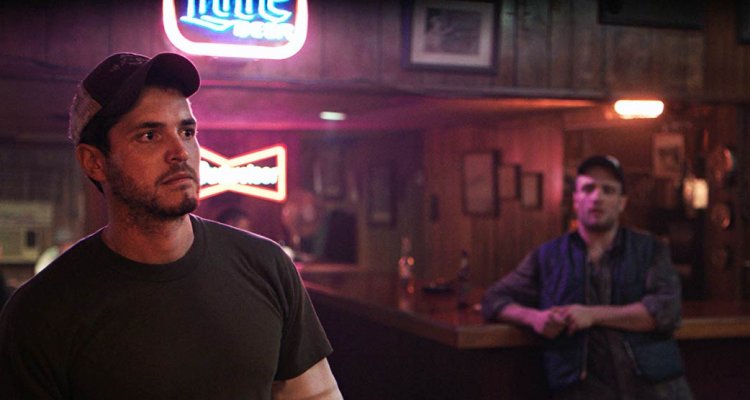A quietly powerful portrait of a young man forced to make impossible decisions to try to live decently in a landscape torn apart by forces far larger than himself, “The Evening Hour” is both an empathetic and sobering drama. Taking place in a mostly forgotten corner of Appalachia dominated by coal mining and rampant opioid use, “The Evening Hour” is the story of Cole Freeman (Philip Ettinger), who by day tenderly takes care of the elderly and by night deals prescription drugs according to his own moral code. Director Braden King, working from a novel by Carter Sickels, spends the rest of the film showing the complexity of Cole’s code and how the return of an old friend to his small town, Terry Rose (Cosmo Jarvis), pushes that code to its breaking point.
READ MORE: Here Are Our Most Anticipated Films from the 2020 Sundance Film Festival
Most movies portraying the drug economy envision it as an outside force that must be avoided at all costs, but to the characters in “The Evening Hour,” it’s as totally pervasive as the air they breath; every character is somehow affected by it and a young man like Cole must live his life in relation to it somehow. Cole may sell drugs, but he is still undoubtedly a compassionate, good person in his community. His nocturnal activities spring from the same generous impulse as his work in the hospital – he helps the town’s vulnerable addicts score without depending on the town’s other supplier, the terrifying Everett (Marc Menchaca), and he uses the proceeds, not for himself, but to support his grandparents.
READ MORE: The 25 Best Movies Of 2020 We’ve Already Seen
The return of Cole’s childhood friend, the charismatic but dangerous Terry Rose, upsets the delicate ecosystem between Cole and Everett. Not only does Terry trade on his past friendship with Cole to get started selling drugs, the only surefire way to earn money in town, but he also reclaims the attention of his ex and Cole’s current girlfriend, Charlotte (Stacy Martin). Further complicating Cole’s state of mind are the ghosts of his family. His grandfather, the family’s patriarch who dies early in the film, was a revival preacher, who drilled the Bible into his family’s heads so effectively they can unwillingly recall it chapter and verse. Cole’s mother (Lili Taylor) left him and her hometown behind to travel and symbolizes to Cole the opportunity to leave his home and its troubles behind. But after her father’s death, she too returns to her family, showing how those bonds can endure despite years of neglect. One of King’s greatest achievements in this look at small-town life is portraying the density and age of relationships that link the characters; almost every character has known the others since childhood and is constantly reminded of their past selves and their familial destiny.
READ MORE: 100 Most Anticipated Films Of 2020
While the performances are strong in general, with professionals augmented with some locals in small parts for authenticity, Ettinger as Cole is truly the bedrock of the film. Probably best known for upturning Ethan Hawke’s life in “First Reformed,” Ettinger gives an effectively restrained performance, giving voice to the many competing tensions in Cole’s life while still operating in the limited range of male expression his community demands.
READ MORE: The 25 Best Films Of 2019 You Didn’t See
King enjoys showing the natural beauty of the area, allowing the camera to pan luxuriantly over lush hills and valleys, but he also highlights how the landscape is being irrevocably marred by the ravages of mountaintop removal coal mining, with characters returning to the favorite natural spots of their youth only to look out on a barren, alien landscape. The climax is somewhat frustrating, manufacturing drama through limiting perspective, but Cole’s moral turmoil is compelling throughout in this complex study of a character and the landscape that shaped him. [A-]
Follow along for all of our coverage from the 2020 Sundance Film Festival here.

